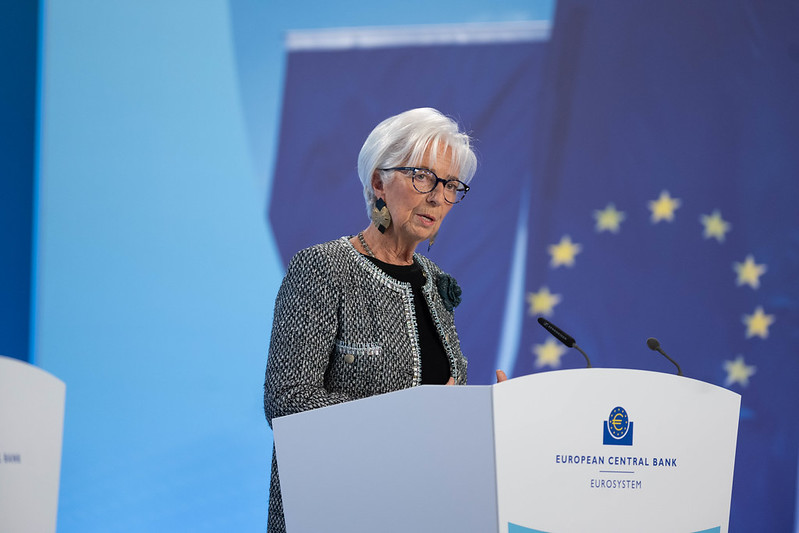ECB’s Lagarde: Extending Oversight to Non-Banks Essential to Safeguard Monetary Policy
3 October 2025

By David Barwick – AMSTERDAM (Econostream) – European Central Bank President Christine Lagarde on Friday warned that the rise of non-bank financial institutions and signs of “regulatory fatigue” could reintroduce vulnerabilities that stronger oversight since the global financial crisis had largely contained.
Speaking in Amsterdam at a farewell symposium for former De Nederlandsche Bank President Klaas Knot, Lagarde said that financial stability and price stability remained “preconditions for each other” and that regulation and supervision were vital in reducing the trade-offs between them.
She pointed to two recurring tensions faced by monetary policymakers: when tightening rapidly to curb inflation, which can erode bank balance sheets, and when maintaining low rates for long periods, which can encourage leverage and imbalances.
In both cases, robust regulation helps limit risks and ensures that monetary policy can focus on its price stability mandate, she said.
The experience of the last two decades had underscored that lesson, Lagarde observed. After 2008, enhanced regulatory and supervisory frameworks allowed the ECB to pursue unconventional easing when inflation was too low and later to raise rates by 450bp in response to the post-pandemic inflation surge.
Despite initial concerns, the financial system weathered both episodes largely intact, thanks in part to stronger capital buffers, ample liquidity and proactive supervision, she said.
But she cautioned against complacency, noting that non-bank intermediaries had grown to more than 350% of euro area GDP and were closely connected to banks. At the same time, lighter regulation in this sector and a fading sense of urgency risked creating an uneven playing field, she said.
“Policymakers should not wait for another financial crisis to be reminded of how high the stakes are,” Lagarde said. “It is imperative to extend oversight to non-banks involved in bank-like activities, or with significant links to the banking sector – and policymakers must do so sooner rather than later.”
Lagarde also paid tribute to Knot, calling him “an outstanding colleague and friend” and highlighting his role both at De Nederlandsche Bank and internationally.
She said his voice on the ECB Governing Council had “carried a weight that helped to forge policy consensus at the most critical of moments – be it during the pandemic or during the sharpest inflation shock in a generation.”
As Chair of the Financial Stability Board, Knot had advanced the global agenda on financial regulation, shaping standards and coordination, she said. In the Netherlands, she added, he had strengthened the macroprudential framework by raising capital buffers and tightening risk weight rules to contain housing risks.
“You were a gifted communicator, conveying complex themes to the Dutch public in clear but never simplistic terms,” Lagarde told him. With more than 5,000 days leading DNB and participation in over 330 ECB Governing Council meetings, his career was “remarkable” and left an imprint on both European and global financial stability, she said.
Lagarde insisted that standards for banks should not be lowered and argued instead for levelling up non-bank regulation. She also said that simplifying prudential and reporting frameworks could reduce duplication without weakening resilience.
Citing Erasmus’ adage that “prevention is better than cure”, Lagarde concluded that vigilance was wiser than complacency, and that financial stability safeguards were essential to preserve the ECB’s ability to secure price stability.
